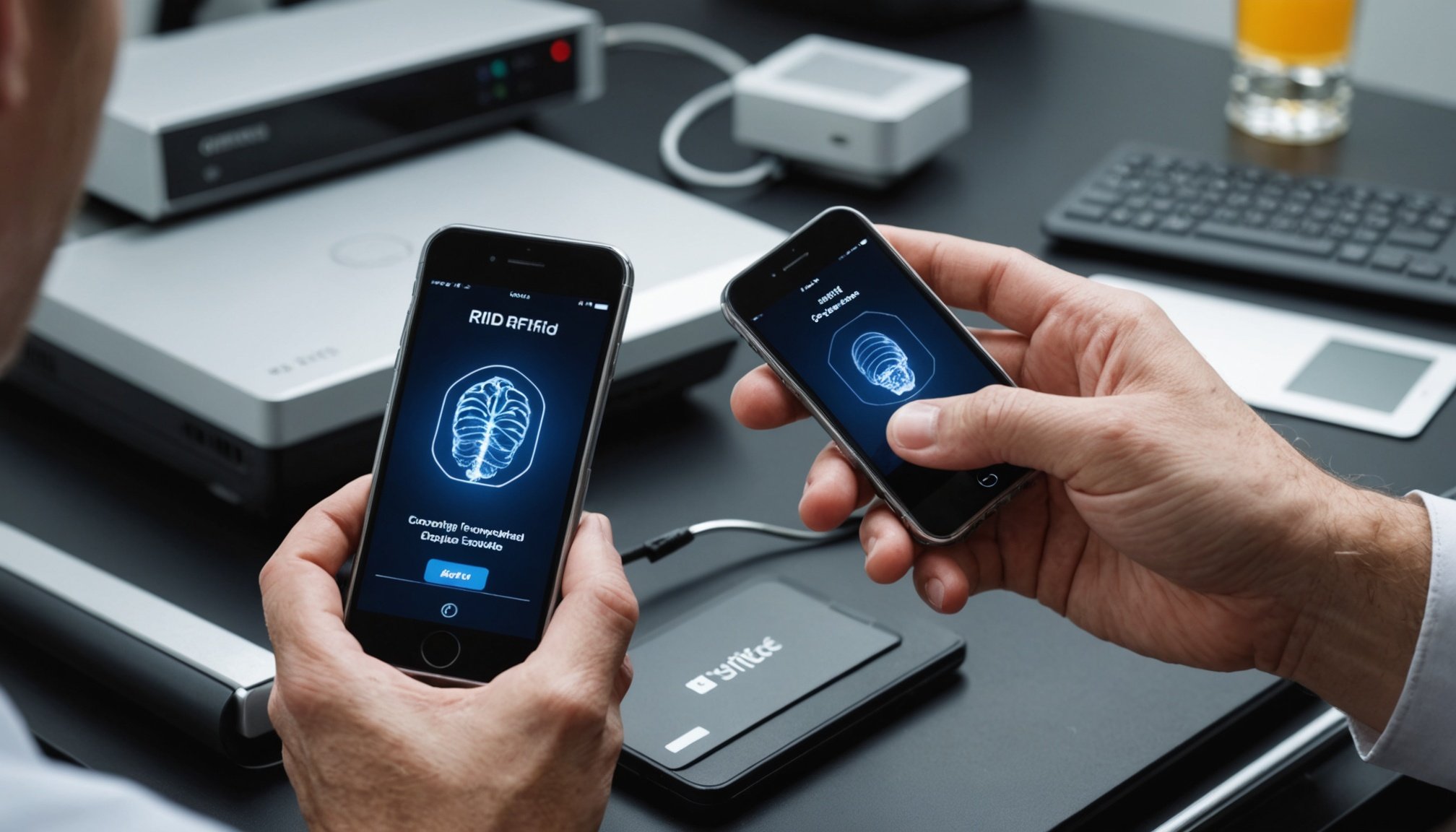RFID technology holds promise for transforming healthcare by improving patient safety and operational efficiency. Yet, challenges like limited real-world applications and pilot implementations hinder its widespread adoption. This article explores these barriers while highlighting the benefits of RFID in patient tracking and inventory management. Discover how overcoming these obstacles can unlock the full potential of RFID, enhancing healthcare solutions and ultimately patient experiences.
Introduction to RFID Technology in Healthcare
Radio Frequency Identification (RFID) is revolutionizing the medical industry by offering innovative solutions for tracking and management. However, the challenges of RFID implementation in healthcare often impede its full potential, due to complexities like cost, signal interference, and staff training. Despite these hurdles, the benefits of RFID in healthcare are substantial, driving improvements in both patient safety and operational efficiency.
Also to see : How Does Participation in Outdoor Activities Impact Mental Health in Adolescents?
RFID systems enable real-time tracking of medical devices, patient movements, and supply inventories. For instance, hospitals can locate defibrillators or wheelchairs within seconds, reducing delays during emergencies. Furthermore, RFID tags enhance medication management by minimizing errors, ensuring the correct prescriptions reach the right patients. These applications not only streamline clinical workflows but also help reduce avoidable mistakes, potentially saving lives.
Another major advantage is the system’s ability to better monitor high-value inventory, like surgical tools or pharmaceuticals. This improves overall asset utilization and reduces wastage. Additionally, RFID integration supports patient flow optimization, ensuring healthcare providers manage bed allocations efficiently, especially during peak operational hours. Such innovations cement RFID’s role as an indispensable tool, despite the effort required to overcome adoption obstacles.
Have you seen this : How Can Wearable Technology Help in Monitoring and Managing Chronic Diseases?
Applications and Use Cases of RFID in Healthcare
Patient Tracking and Identification
The role of RFID in healthcare extends significantly to improving patient identification and tracking. Using RFID tags for healthcare, hospitals can reduce errors in patient identification, ensuring proper administration of medication and treatments. For example, RFID bracelets worn by patients can store essential medical information, enabling accurate and timely interventions. Moreover, the technology mitigates risks of sample mislabeling, promoting patient safety and improving hospital workflows.
Inventory Management in Healthcare
RFID applications in healthcare demonstrate substantial benefits in inventory oversight. From tracking pharmaceuticals to surgical tools, hospitals can use RFID to maintain accurate, real-time supply levels. The importance of RFID technology in healthcare becomes clear when managing costly assets or temperature-sensitive medications. RFID systems ensure proper stock rotation, reduce waste, and prevent shortages, enabling a more reliable supply chain.
Tracking Medical Equipment and Supplies
Healthcare asset tracking with RFID is pivotal for locating medical devices such as ventilators or infusion pumps quickly. RFID antennas identify a device’s location in real-time, saving staff time and improving operational efficiency. Additionally, tracking medical equipment with RFID through sterilization cycles contributes to maintaining hygiene standards, ensuring critical supplies are always ready for use.
Challenges and Solutions for Implementing RFID in Healthcare
Interference with Medical Equipment and Signal Issues
One of the primary challenges of implementing RFID in healthcare is electromagnetic interference (EMI) with medical devices. Certain environments, such as intensive care units, are particularly vulnerable. Hospitals can preempt these risks by conducting extensive on-site EMI tests before rolling out RFID solutions for the healthcare sector. Additionally, signal penetration challenges, such as interference from walls and metallic surfaces, may limit signal strength. Healthcare facilities can mitigate this by using advanced UHF RFID technologies and strategically planning reader placement to maximize coverage without signal disruption.
Protecting Patient Data and Privacy
RFID security concerns in healthcare include the possible exposure of sensitive patient information due to unauthorized access. To counteract this, data encryption protocols and multi-layered user authentication are essential. Training healthcare staff on best practices for RFID security further strengthens the overall system. Routine risk assessments, alongside updated regulatory compliance, ensure ongoing protection of patient data.
Evaluating Costs and ROI Considerations
The cost of RFID solutions in healthcare remains a barrier, but the long-term benefits justify investment. RFID boosts operational efficiency and patient safety, reducing waste and manual errors. Strategic planning and ROI analysis can help healthcare administrators balance upfront costs with future cost savings, making RFID a valuable long-term asset.
Future Trends and Innovations in RFID Technology for Healthcare
Emerging Technologies and Integrations
Future trends in RFID technology for healthcare reveal an expanding integration with artificial intelligence (AI) and the Internet of Things (IoT). These advancements enable healthcare RFID systems to provide real-time data analytics, improving decision-making processes. For example, combining RFID with IoT allows continuous tracking of medical devices, ensuring accurate asset management while reducing costs. Additionally, RFID tags integrated with blockchain are being explored for secure patient data management using RFID, safeguarding sensitive information with transparent, tamper-proof records.
Case Studies and Success Stories
Several case studies on RFID efficiency in hospitals showcase its transformative potential. For instance, hospitals utilizing RFID solutions for the healthcare sector report better inventory accuracy and reduced medication errors. In practical applications, tracking medical equipment with RFID has minimized device misplacement, enhancing operational efficiency. These examples highlight RFID’s growing role in streamlining healthcare services.
Predictive Analytics and RFID’s Role in Transforming Healthcare Operations
Predictive analytics powered by healthcare RFID systems is revolutionizing patient flow optimization. By analyzing data collected from RFID in healthcare logistics, facilities can anticipate patient admissions, streamline staffing needs, and improve overall healthcare delivery. This integration demonstrates the transformative impact of radio frequency identification in hospital management on operational efficiency and patient outcomes.












